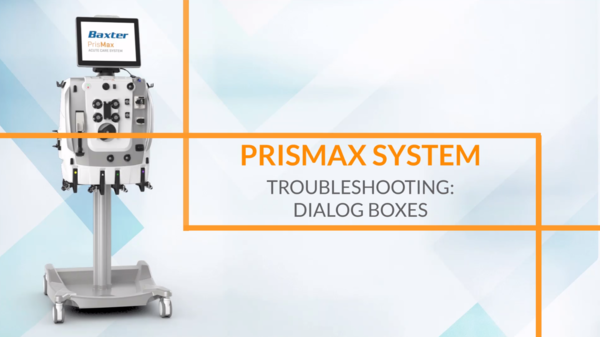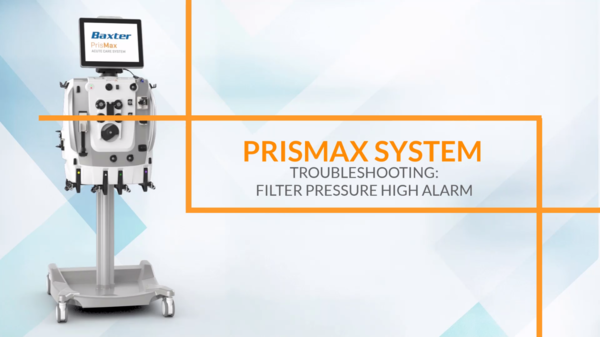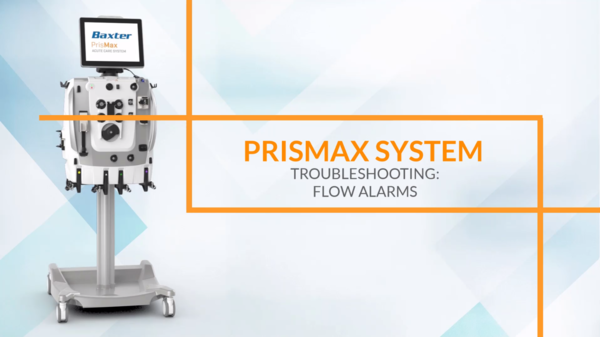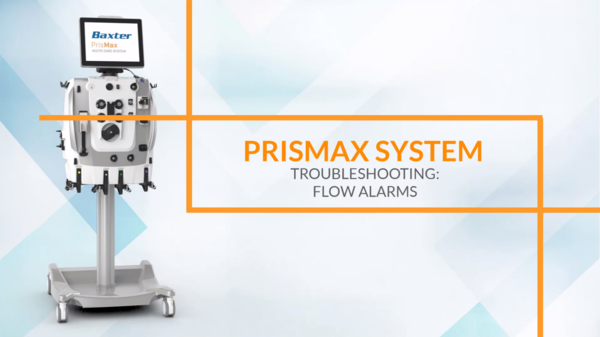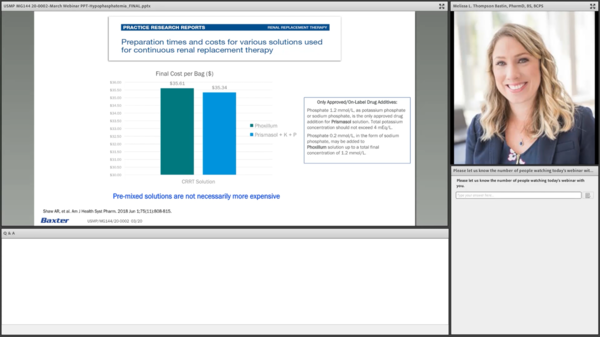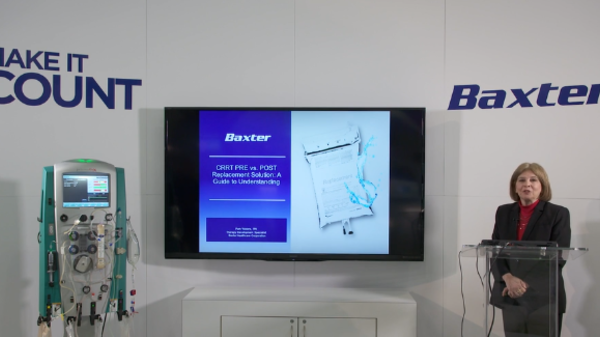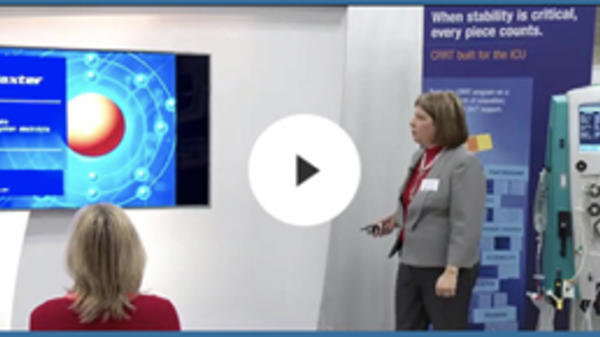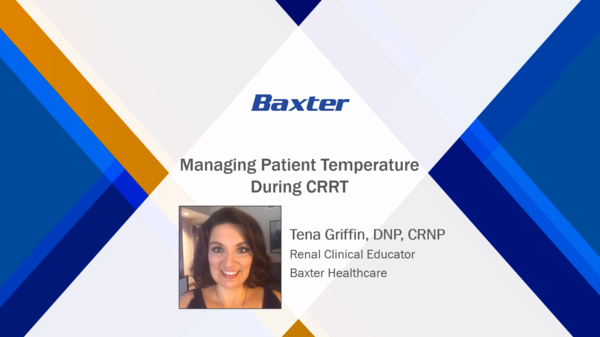Data & Resources
Here you can find various resources related to our Baxter renal care product portfolio, including brochures, data sheets, product videos and podcasts.
Preventing Hypophosphatemia and Improving Patient Outcomes in CRRT
Dr. Melissa Thompson-Bastin discusses managing phosphate levels and preventing hypophosphatemia in CRRT, as well as how and when to implement Baxter's renal replacement solutions.
View resourceTMP and Filter Pressure Drop
Kathy Worthington, MSN, RN discusses factors affecting circuit life, CRRT hemodynamics and troubleshooting tips.
View resourceCRRT: Pre and Post Replacement Solutions - A Guide to Understanding
Pam Waters, RN, explains the uses and benefits of CRRT replacement solutions, and the differences between pre- and post-replacement solutions.
View resourcePhosphate: The Forgotten Electrolyte
The kidneys' most important function is the regulation of electrolytes, one of which is phosphorous. Greater than 60% of patients will present with hyperphosphatemia with acute renal failure. Pam Waters discusses how you can help critically ill patients with CRRT therapy.
View resourceManaging Patient Temperature During CRRT
Tena Griffin, DNP, CRNP discusses managing patient blood return temperature including current study data and Baxter's recommendations
View resourceFluid Balance in the Critically Ill Patient
Tena will discuss the importance of optimizing patient fluid balance and managing fluid overload in patients with septic shock and acute decompensated heart failure.
View resource
